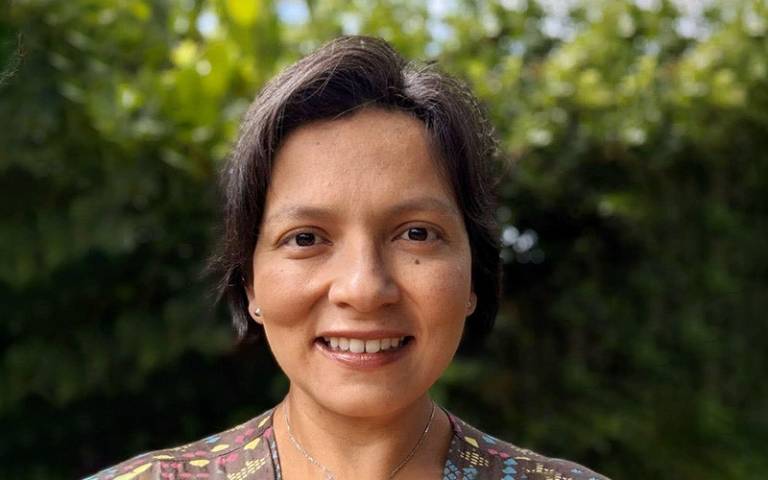Dr Paola Pinilla (Mullard Space Science Laboratory at UCL) has been awarded the prestigious 2024 New Horizons in Physics prize for advancing understanding of how planets form from dust.

The New Horizons prizes, bestowed by the Breakthrough Prize Foundation, are awarded to early-career researchers who have already made significant contributions to their fields.
Dr Pinilla was awarded the prize alongside colleagues Dr Laura M. Pérez, Dr Nienke van der Marel and Professor Til Birnstiel, "for the prediction, discovery, and modelling of dust traps in young circumstellar disks, solving a long-standing problem in planet formation".
Dust traps are regions of dynamic rings of gas and dust around stars where dust particles can aggregate or clump together for long enough to form the rocky core of a planet.
Before the discovery of dust traps, calculations suggested that such clumps would collide and break apart once reaching a certain size, or would drift inward towards a star where they could not grow further.
Dr Pinilla said: "I am very honoured and humbled to receive this prize together with my magnificent colleagues. This prize reflects the enormous efforts of a scientific community working on understanding planet formation.
"I am immensely thankful to several mentors that I have had during my career, for inspiring me and believing in me. This prize is dedicated to my partner, who has been an essential support in my life and who has always empowered me to follow my dreams."
Dr Pinilla's research focuses on understanding the first steps of planet formation by developing numerical simulations of gas and dust evolution in disks around young stars, and comparing the results with multi-wavelength observations from different telescopes.
Prior to UCL, Dr Pinilla was a group leader at the Max Planck Institute for Astronomy (MPIA) in Heidelberg, Germany. Originally from Bogotá, Colombia, she has also held posts at Leiden Observatory in the Netherlands and the University of Arizona.
Now in its 13th year, the Breakthrough Prize, known as the "Oscars of Science," annually recognises achievements in the Life Sciences, Fundamental Physics and Mathematics. Each Breakthrough Prize is worth $3 million; each New Horizons prize - of which six were awarded this year to 12 physicists and mathematicians - comes with $100,000. The Prize was created by founding sponsors Sergey Brin, Priscilla Chan and Mark Zuckerberg, Julia and Yuri Milner, and Anne Wojcicki.
This year's prize money comes to a total of $15.75 million, bringing the amount conferred over the 13 years of the Breakthrough Prize to $308 million.
Previous UCL recipients include:
- Dr Ziri Younsi (Mullard Space Science Laboratory at UCL), who was among hundreds of scientists in the Event Horizon Telescope (EHT) team to share the 2020 Breakthrough Prize in Fundamental Physics.
- Professor Hiranya Peiris (UCL Physics & Astronomy), who shared the 2017 Breakthrough Prize in Fundamental Physics for creating detailed maps of the early Universe.
- Professor John Hardy (UCL Institute of Neurology), who won the 2015 Breakthrough Prize in Life Sciences for his pioneering research into the genetic causes of Alzheimer's disease, other forms of dementia and Parkinson's disease.






